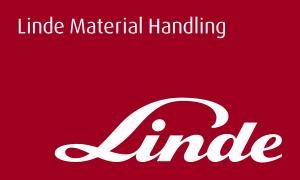Positive interim conclusions
Linde Material Handling draws its first interim conclusions regarding the fuel-cell project for the BMW Group in Leipzig, Germany
At the beginning of November—almost a year after the official handover of four tugger trains and five forklift trucks with fuel-cell hybrid drives to the BMW Group plant in Leipzig—Linde Material Handling (MH) drew up an initial interim balance for the project. Based on experience gained in the last few months, effective technical adaptations have already been made, which have subsequently improved the reliability of the trucks. This trend is confirmed by the ongoing evaluations of the Institute for Materials Handling, Material Flow and Logistics at the Technical University of Munich, which is providing scientific support for the project.
“The industrial trucks with fuel-cell hybrid drives used for parts supply in the body shop of the BMW plant in Leipzig assume the same transport tasks as their lead-acid-battery counterparts in other parts of the plant,” says Hannes Schöbel, Product Manager for Innovative Drives at Linde MH. “It is our declared aim to further optimise the trucks and further develop the technology used in industrial trucks with the help of the knowledge gained from this project.”
At the beginning of November—almost a year after the official handover of four tugger trains and five forklift trucks with fuel-cell hybrid drives to the BMW Group plant in Leipzig, Germany—Linde Material Handling (MH) drew up a positive interim balance for the project.
“The Linde E25 HL and Linde E35 HL trucks used in Leipzig—with load capacities of 2.5 and 3.5 tonnes respectively—feature a newly developed 80-volt fuel-cell system. Since the beginning of the project, we have made gradual truck optimisations with regard to the forklift trucks”, reports Mark Hanke, Head of the Industrial Truck Design Department at Linde MH. This has included, for example, updates to the internal software of the fuel cells. “Information on the daily use of the trucks by BMW in Leipzig is extremely valuable to us, and supplements our own test runs at our test site”, continues Hanke. The Institute for Materials Handling, Material Flow and Logistics at the Technical University of Munich has documented the effect these optimisations have had. “We continually analysed a variety of aspects, including individual event messages and service reports. In doing so—and in conjunction with maintenance costs—we were able to determine the technical availability of the truck. Together with the evaluation of the handling steps over time during hydrogen refuelling, the ‘operational availability’ of the industrial truck emerged”, explains Robert Micheli, scientific associate of Professor Willibald A. Günthner at the Institute for Materials Handling, Material Flow and Logistics at the Technical University of Munich. “With the experience gained from the project, we at the Institute for Materials Handling, Material Flow and Logistics—together with our project partners—have also developed guidelines for use of the hydrogen-powered industrial trucks to help future users when it comes to acquisition and operation, including the required infrastructure and licences.”
Furthermore, the project has resonated well with other interested parties in Leipzig. “Lots of customers have been asking us about these trucks, and many would like to see them in action at the BMW plant in Leipzig”, reports Hannes Schöbel. “We will soon be delivering three more fuel-cell-powered industrial trucks to customers in the automotive and logistics industries.”
The BMW group, Linde Material Handling and the Institute for Materials Handling, Material Flow and Logistics at the Technical University of Munich received a grant approval from the Federal Ministry of Transport and Digital Infrastructure in the summer of 2013 for the construction of a fleet of hydrogen-powered forklift trucks and tugger trains. The grant for the research project—which will run until April 2016—was awarded as part of the National Hydrogen and Fuel Cell Technology Innovation Programme (NIP) and amounts to 2.9 million euro. The aim of the project is to explore environmentally friendly and efficient hydrogen drives for industrial trucks in real production conditions, and to develop these further towards being ready for series production. The focus of the NIP—besides large-scale demonstration projects—is on projects in the field of research and development. The programme is coordinated by NOW, the National Organisation Hydrogen and Fuel Cell Technology (Nationale Organisation Wasserstoff- und Brennstoffzellentechnologie).

